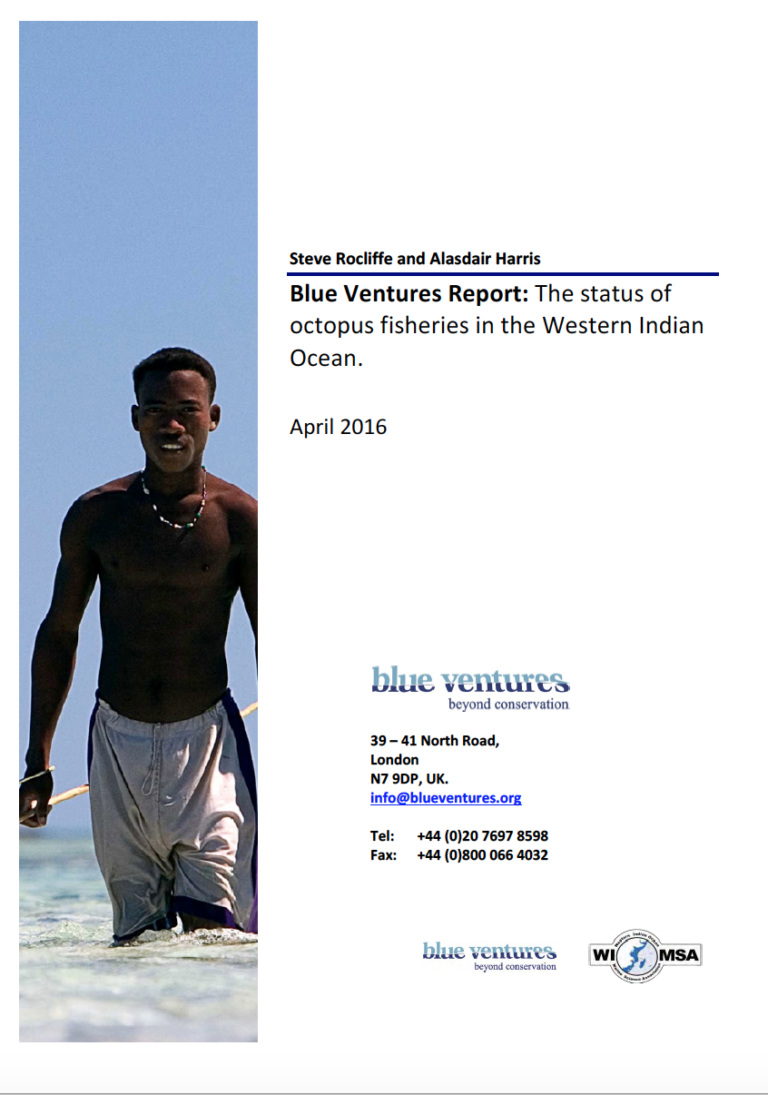Summary
Octopus fisheries are an important resource for coastal communities throughout much the WIO region. In many coastal zones with coral reefs, octopus fishing dominates small-scale fishing effort and is a particularly important economic activity for women as well as men. This report reviews the status of octopus fisheries in the Western Indian Ocean, as part of efforts to improve regional knowledge. It examines trends in catches, imports and exports of octopus at both the global and regional level, and explores the status, extent and structure of the fisheries in eight WIO states: Madagascar, Rodrigues, Comoros, Tanzania, Zanzibar, The Seychelles, Kenya and Mozambique.
Key Findings
• Global octopus catch peaked at almost 380,000 tonnes in 2007, and has since declined by a tenth to 335,865 tonnes in 2012.
• The growth in octopus catches since 1990 has not occurred evenly. Africa was the primary region for octopus capture in 1990, but has since seen its share of the global total halved from 35% in 1990 to 18% in 2012.
• At a global scale, China, Morocco, Mauritania, Spain and Vietnam are the main exporters of octopus.
• Global imports of octopus totalled an average of US$ 1.6 billion dollars per year between 2009 and 2013. Major markets are centred in Asia and Europe, particularly Japan, South Korea, Italy and Spain.
• Tanzania, Madagascar and Kenya are the largest exporters of octopus in the Western Indian Ocean and target EU markets primarily, particularly Portugal, Italy, France and Spain.
• Artisanal fishing for octopus has been practiced for centuries in the Western Indian Ocean and is an important economic and subsistence activity for many coastal communities, especially in Tanzania, Madagascar, Rodrigues and Mozambique.












